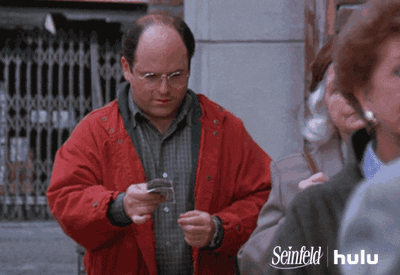|
“Although talent feels and looks predestined, in fact we have a good deal of control over what skills we develop, and we have more potential than we might ever presume to guess.“
–Daniel Coyle, The Talent Code
Ever wonder why you are not improving? Ever wonder why your career has plateaued? For many, we have been at this “job” for a while, and if you are like most people, our learning and performance has plateaued. Mostly, you’ve stopped getting better at what you do.
As physicians, we are no stranger to delaying gratification. Compared to our non-medical colleagues, we have spent an excessive amount of time reaching the rank of “doctor.” We had been preparing for that day since high school, and once that destination is reached, we exhale completely and become comfortable.
To achieve a lifetime of wellness, graduating from medical school is only the beginning of our journey, not a destination. In fact, it doesn’t matter how many years you have been practicing; most physicians fail to become experts in their field. While, yes, we have a remarkable ability to consume information, there are limits to how far we can advance without deliberate practice.
To transition from doctor to expert, from average to extraordinary, from “just trying to make it through my shift” to a lifetime of wellness, we need to practice deliberately and intentionally.
In this week’s ideas, Harry Karydes, DO, an ER Physician and member of our editorial board, explores two key concepts that enable physicians to thrive both personally and professionally.
Harry is also featured in our Physicians Helping Physicians Spotlight for the great work he is doing to help physicians overcome burnout.
…..
“I fear not the man who has practiced 10,000 kicks once, but I fear the man who has practiced one kick 10,000 times.”
-Bruce Lee
This article discusses the origins of deliberate practice and how we can use it to improve our lives.
The idea of mastering a skill was popularized by New York Times Bestseller, Malcolm Gladwell, in his wonderfully written book Outliers. In his book, Gladwell tries to answer the question, “what makes high achievers different?” He opines that we, as a society, pay way too much attention to what successful people are like instead looking at the subtle differences that make them outliers. Along the way, he explains secrets such as what made the Beatles great and why some software developers are billionaires while others can’t even make it past start-up status.
While, yes, their culture, family, and idiosyncracies shape their success, it is this claim that that greatness requires an enormous amount of time–specifically 10,000 hours. In this book, he cites the 1993 work of K. Anders Ericsson, a Professor of Psychology at Florida State University.
Since Gladwell’s claim, Professor Ericsson has sought to clarify Gladwell’s interpretation. In fact, Ericsson mentions that his study does not suggest a “magic number” for achieving greatness. His research revealed that, on average, elite performers practiced 10,000 hours. More importantly, Ericsson showed that mastery of skill could be achieved using concrete, very focused, deliberate practice.
While regular practice may include mindless repetition of a specific task or routine, deliberate practice is purposeful and mentally demanding. It’s hard. It requires an intense level of focus and concentration to improve performance–the go beyond your current level.
Simply put, deliberate practice is demanding–incredibly demanding.
But it works.
2. Goal Setting for Physician Wellness

“Setting goals is the first step toward turning the invisible to visible.”
–Tony Robbins
This article explains the framework that physicians can use to set and achieve worthwhile goals that will ultimately improve their well-being.
All too often, we enter into a state of stasis and comfort and go about our workday, and frankly, our personal life is “comfortable” with the way things are. This is not a recipe for growth, success, or wellness. We are in this for the long term, and building processes to be intentional is just the first step.
Goals allow us to push ourselves to achieve something more significant than your current reality. While there are many ways to begin this journey, I have found using SMART Goals the most successful.
SMART Goals
Specific
Being crystal clear and specific on your goal is vital. Wanting to lose weight is a dream. Wanting to lose 10 lbs is a goal. Wanting to lose 10 pounds by April is a better goal. Wanting to lose 10 pounds in April so I can look good in my outfit for my medical school reunion is a specific goal. Your chance toward success is niching down to this very granular level.
Measurable
When you measure something, you can track your progress and know when you achieve a goal. This is relatively easy for us. We track vital signs, lab work, and patient status daily. We want to continue using skills that we know and transfer them to our personal and professional goals. As an example, wanting to make more money is an aspiration. Wanting to grow my consulting business by 10% is a specific, measurable goal.
Achievable
As high achieving physicians, we are comfortable setting the bar high, but make sure the “bar” is feasible. All too often, we set lofty goals with no intention of achieving them, which leads to resentment, frustration, and burnout. This step in goal setting is meant to inspire motivation, not to discourage.
Realistic
Similar to achievable, your goal must be realistic. Wanting to work two days a week and earning a 7 figure salary is not a realistic goal for most of us. Find a goal that fits your current reality and lifestyle and work to progressing further each day, week, and year.
Time-sensitive
Having a hard time stamp on your goal will focus and ground you. This adds a sense of urgency to the goal. A goal without a date is a dream.
…..
|

